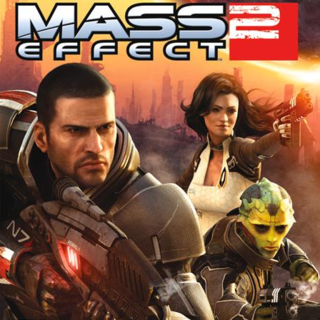A missed opportunity. While combat is generally solid, the stripping of everything else makes for a shallow experience
STORY:
The DLC continues the galactic escapades of Commander Shepard, who is contacted by hard-as-nails, Alliance-devotee, Admiral Hackett. Shepard is tasked with breaking out a deep cover agent, who is being held by Batarians. Supposedly the doctor holds the key to a deadly secret concerning the Reapers that threatens the very existence of the universe. While I'm not going to spoil the specifics, the grand "secret" merely reaffirms the fact that the Reapers are in fact coming… because we obviously didn't know that.
The story is very minimal, in that there is only a few minutes of dialogue, in addition to the agent being the only character outside of Hackett whom you can interact with. While it was a treat to finally meet Hackett in person, (a nice contrast to his impersonal barking over a monitor for the past two games), it does not make up for the lack of memorable plot points. The story adds nothing to the lore of the universe, only serving to provide combat context (ie. Who you shoot). Not to mention the major "twist", and only point of relative intrigue, is painfully obvious. Another alarming element removed were the decision making. I am relatively indifferent regarding the inclusion of earth (err…planet) shattering decisions scattered throughout these bite-sized experiences. However, a particular event in the story occurs where you are given two variants of fundamentally the same option. This was quite frustrating in that, it was quite morally ambiguous and influential; a perfect recipe for potentially tense moral deliberation unfortunately lost in the scramble. Even though I understand that this design choice was most likely due to Bioware's unwillingness to add yet another plot branch within ME3, the illusion of choice in such as decision-centric game is disappointing.
COMBAT/DESIGN:
The combat hits much higher marks, however even here there is some questionable execution. This mission being of a highly covert nature means that Shepard must enter the enemy base without a support party. In previous games, Shepard could dish out massive amounts of biotic/tech/combat-infused badassry; Stopping only to recharge under conveniently placed box, while the support cheerleaders consumed enemy fire like metal-flavored trail mix. This simple design choice changes the pacing of combat for the better demanding much more of the player. No longer are tactics of simply firing from a stationary position advantageous, constant movement to combat the fast advancing enemies is even more paramount than ever.
Level design is quite a mixed bag. Combat in a lab faculty, an abandoned prison, and lounges make for a nice naturalistic change of pace in contrast to the staged battlefields of old. In most areas, cover only protects Shepard partially, which can lead to him/her being easily flanked. For Example, there was a room with three main entrances, two on both sides and one toward the front. In the center was a semi-hexagonal ledge that served as minimal cover, however due to the angle at which one took cover, I never was fully protected. This caused me to move around the angled ledges blasting away enemies to clear a path before being flanked once again, making for a pleasantly chaotic battle. Unfortunately, this effective level design does not extend in all of the areas. In one major sequence Shepard is tasked with protecting the defenseless doctor from waves of enemies. At first the tension builds up to an impending, high-stakes firefight, however as soon as the enemies pour in, the excitement quickly dissipates. Despite illusions of a complex intricate room, the field is fundamentally one giant battlefield with two major entrances. The enemy AI would use cover properly at a distance, however when let to advance through a choke point, most would consistently cluster together, as if they were deliriously celebrating the advent of their impending slaughter. The doctor, would also inform Shepard of not only the resurgence of enemies, but the location as well, further diluting the experience. The ending however lucky wraps up on a high-note with one last (but unfortunately brief) set piece that nearly redeemed the numerous archaic design issues.
The Mass Effect fateful that have followed every DLC with enthusiastic gusto, will find an action-packed, yet shallow experience that serves to whet our appetite before the conclusion. However, this is by far the weakest entry in the entire palette of DLC for Mass Effect 2. This is a wonderful example of how Mass Effect as a series use combat as merely a component accenting the greater pillars of story, decision-making, and dialogue, not the pillar itself. When Mass Effect becomes just another third-person shooter, it losses the very identity that it built itself upon (a "husk" of its former self if you will). Let's hope that this hastily produced product does not reflect Bioware's current quality standards for Mass Effect 3.

